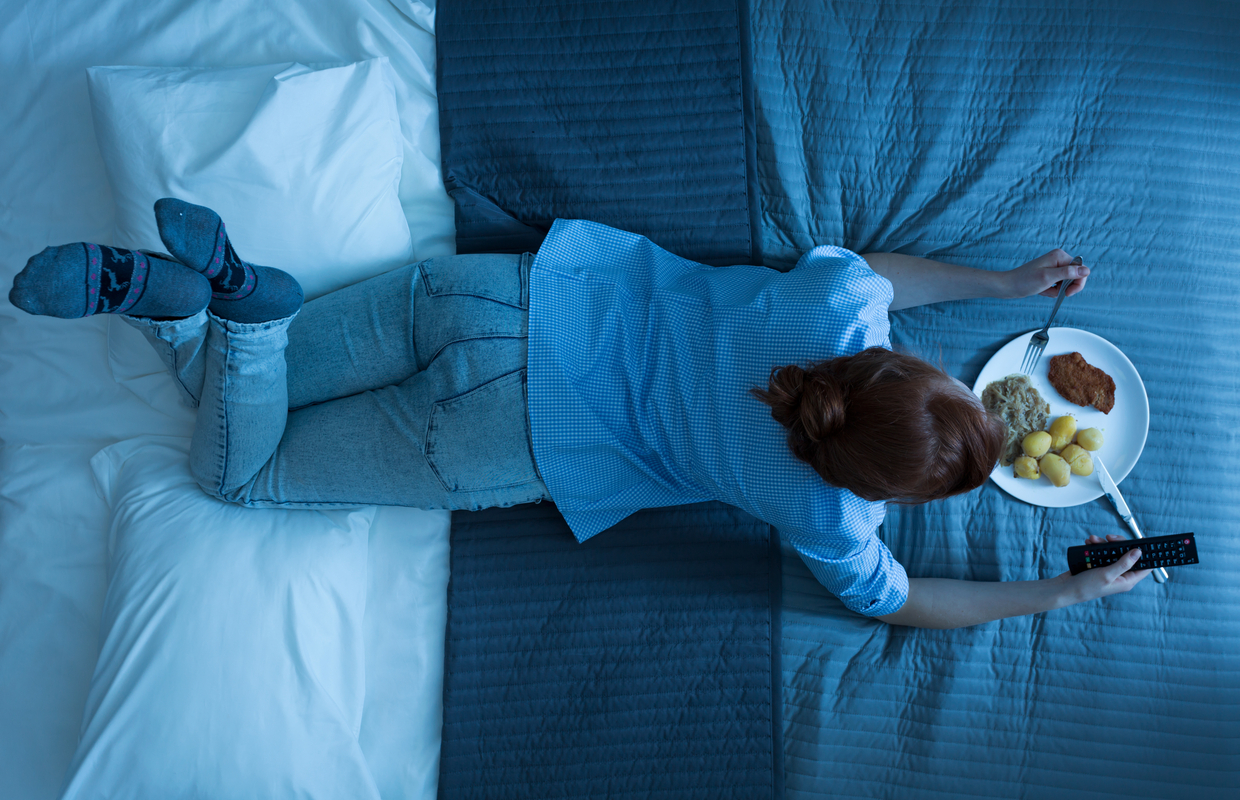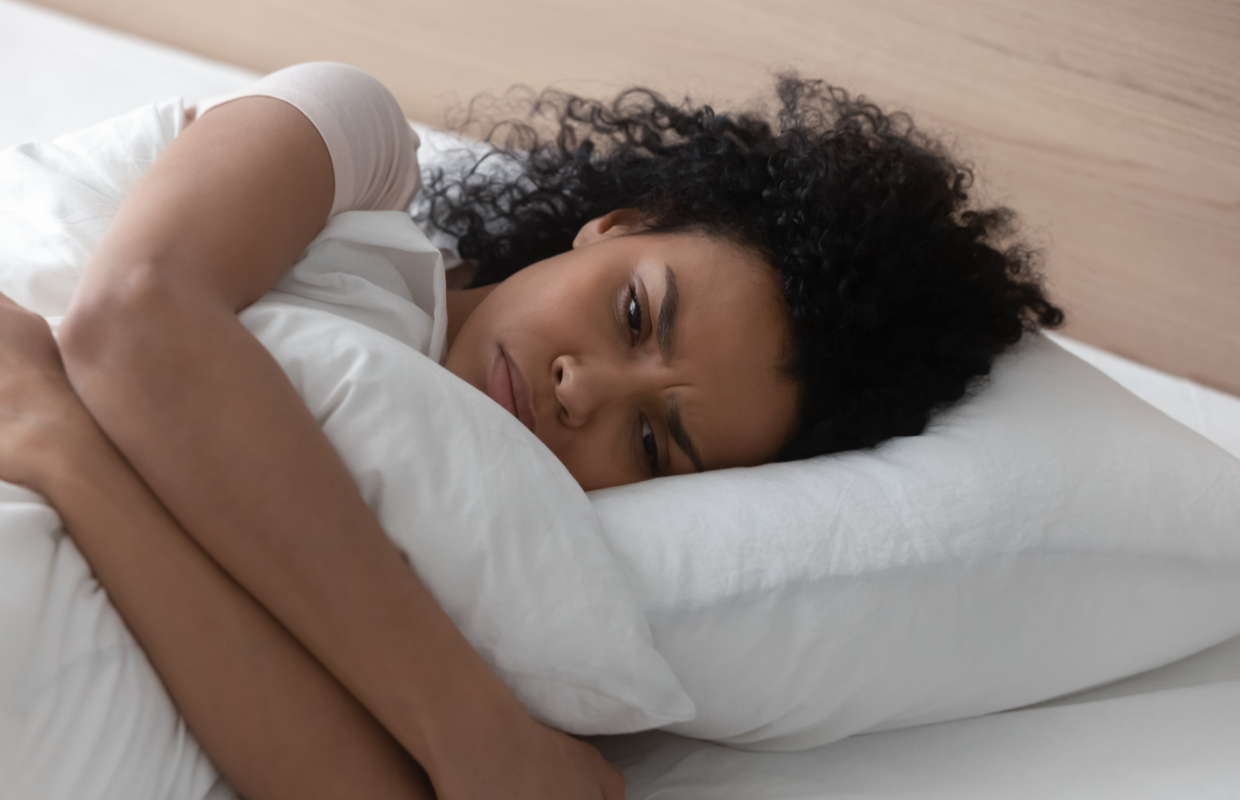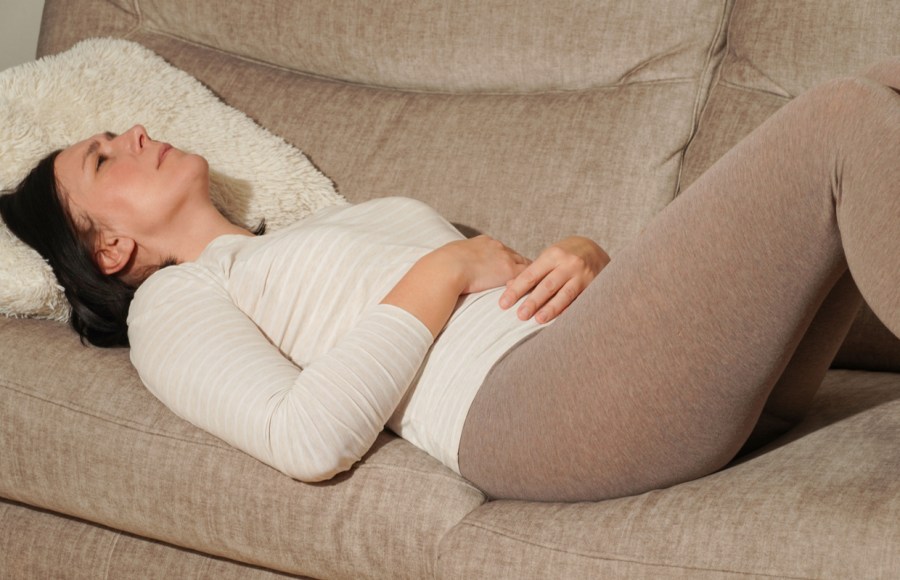We know that gut health is crucial for keeping your weight down, feeling clear-headed and, of course, avoiding digestive problems, like IBS. But did you know that several of your daily habits could be triggering your IBS and harming your gut? Read on to discover the 7 common diet and lifestyle triggers that you need to avoid to improve your gut health and find relief from IBS…
1. Drinking spirits triggers IBS
Sad news for vodka lovers: it seems that drinking spirits is bad for gut health, according to the British Gut Project, which explores common IBS triggers. Meanwhile, red wine is actively good for your tummy, thanks to its polyphenols that feed the microbiome. However, excessive alcohol has been linked to several health issues, so be sure to limit yourself to one glass. The researchers have not yet worked out the effects of beer on the gut: stay tuned beer lovers!
2. Mouthwash can damage your gut bacteria
Sometimes with health stories, it feels like you can’t do right for doing wrong! Having been told by dentists for decades that anti-bacterial mouthwash is the best thing for our teeth and gums, scientists are now speculating that commercial mouthwashes might damage our natural oral bacteria, and negatively influence our gut too.
If you want to keep your mouth clean and fresh, while avoiding something which could trigger an IBS flare-up, try rinsing your mouth with salt water. Alternatively, you could try drinking green tea regularly, which boasts antibacterial properties.
3. Chewing gum can cause bloating
When you chew gum your body starts to expect a meal, and your stomach will produce acid. Of course – unless you mistakenly swallow it, which we certainly don’t recommend – there’s then nothing reaching the stomach so the acid has nothing to digest. This can end up harming gut bacteria and causing stomach pain.
Gum chewing can also cause you to swallow excess air, adding to bloating and triggering IBS symptoms. So, all-round it’s worth ditching the gum for the sake of your stomach and gut health.

4. Late night snacking can disrupt your digestive tract
The night-time is important for your tummy to catch up on its admin! A long break between meals gives your digestive tract time to regenerate, so eating late at night or having a midnight snack is one of the most common IBS triggers.
Aim to fast every day for 12 hours: this might sound like a lot, but many people are already unknowingly succeeding in this step. If you aim to finish your evening meal by 8pm, and don’t eat your breakfast until past 8am, then you’re acing it!
5. Eating the same meals could prevent a happy gut
Your gut’s microbiome thrives on a wide range of prebiotic and probiotic foods, as well as plenty of fibre. A lack of diversity could make your tummy more susceptible to infection or illness, so mix things up, especially where fruit and veg are concerned.
Many nutritionists recommend eating 20-30 different plant varieties per week (this includes fruits, vegetables, nuts, seeds and pulses). This will diversify your gut microbiome and keep IBS symptoms at bay.
6. Sitting still all day triggers IBS
It’s hard to remember to keep moving if you have a desk job, but regular movement is crucial to a healthy gut. Studies have shown that professional rugby players have a more diverse gut flora and double the number of bacterial families when compared to similar demographics, proving that regular sport is fab news for the gut.
Try to aim for 30 minutes of exercise every day – this could be a walk, a gym session or a yoga class, or anything in between. So long as your heart rate is increased and your body is moving, your gut health will thank you.
If you have a sedentary day job, why not set an alarm reminding you to stretch and move every hour or so? This will help you to avoid triggering your IBS throughout the day, while also aiding in the avoidance of back, neck and shoulder pain caused from sitting at a desk all day.

7. Lack of sleep can damage the gut
We already know that sleep is important for everything from helping concentration to keeping your weight down, but did you know it’s also essential as far as your gut health is concerned? Research has revealed that your gut follows a circadian rhythm, just like the rest of your body. Disrupted sleep over two or more nights increased the amount of bacteria associated with weight gain, obesity and type 2 diabetes, as well as being one of the most common triggers for IBS.
Aim for at least 8 hours of sleep every night. To improve your sleep quality, try to limit caffeine after 2pm and avoid screens a few hours before bedtime. Creating a bedtime routine can also be useful, when performed every night before bed, as it helps your mind and body recognise when it’s time for sleep. For example, you could have a warm bath, drink a cup of chamomile tea, then read a chapter of a book before switching the lights off and heading to bed.
Looking for more gut health advice? For IBS Awareness Month, we’re giving away free copies of Your Guide to Good Gut Health. Click here to find out more and download your copy.







